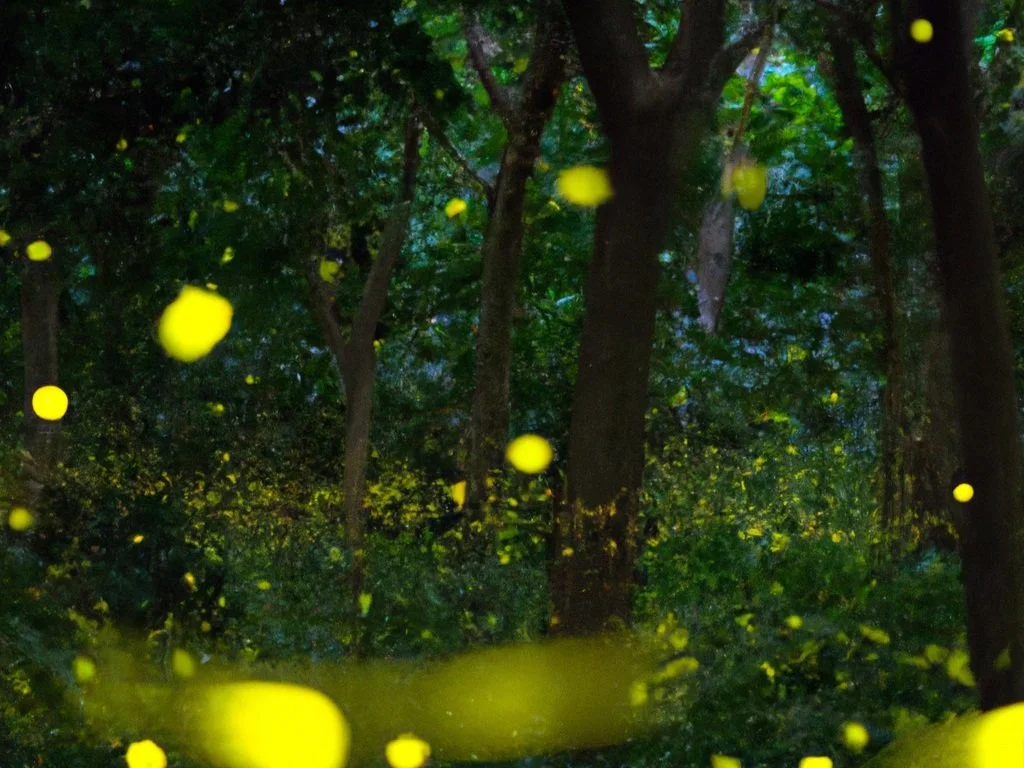Keeping The Wonder of Fireflies Alive
As summer settles in and a magical phenomenon begins to cover the twinkling corners of the world, we look to fireflies to understand one of the fascinating insects and important pollinators that can help shed light on why they light up, their ecological significance, and the efforts to protect these enchanting creatures.
Scientifically known as Lampyridae, fireflies have captivated the imagination for centuries with their mesmerizing bioluminescent display. The enchanting glow results from a chemical reaction called bioluminescence, in which luciferin, an enzyme, reacts with oxygen to produce light. Aside from their aesthetic appeal, fireflies play a crucial role in regulating the ecosystem. Firefly larvae are predators of slugs, snails, and other small invertebrates. Fireflies contribute to the overall balance of their habitats by keeping the population of these pests in check. Furthermore, fireflies serve as indicators of environmental health, as their presence or absence can directly affect air and water quality in a given area.
Although fireflies are generally well-liked insects, they face numerous threats due to human impact and climate change. Habitat loss, pesticide use, and light pollution have all taken a significant toll on these pollinators. Light pollution, in particular, disrupts their mating signals, making it difficult for fireflies to find mates. As a result, conservationists are working diligently to raise awareness about preserving dark, natural habitats and reducing light pollution to protect firefly populations.
Create a Firefly-Friendly Environment:
Fireflies thrive in areas with plenty of vegetation and a clean water source. Consider growing a garden or maintaining an existing one that provides a suitable firefly habitat. Include native plants, flowers that attract insects, and tall grasses.
Reduce Light Pollution:
. Minimize outdoor lighting, especially during firefly season, and use yellow or warm-toned bulbs that are less attractive to them.
Avoid Pesticides and Chemicals:
Fireflies are sensitive to pesticides and other chemicals used in gardens or lawns. Opt for organic and natural pest control methods to protect fireflies and other beneficial insects.
Preserve Natural Habitats:
Fireflies survive in diverse habitats, including forests, wetlands, and meadows. Support conservation efforts by protecting natural areas and advocating for their preservation in your community.
Avoid Firefly Captivity:
Fireflies are meant to be enjoyed in their natural environment. Avoid capturing fireflies or keeping them in captivity, as it can disrupt their life cycle and decrease their population.

